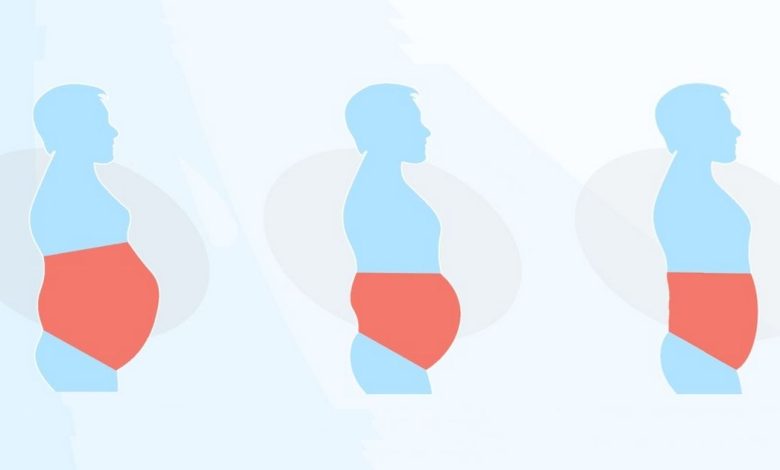Bloated belly: What's it, symptoms, diagnostics, treatment, prevention

Synonyms: bloated belly; abdominal distention; bloated belly
Abdomen – swollen; Swollen belly; Swelling in the abdomen; Abdominal distention; Distended abdomen
What is bloating
A bloated abdomen is characterized by a sharp increase in volume in the abdomen and may be accompanied by a feeling of discomfort or pain..
Causes of bloating
Bloating is most often caused by overeating., not a serious illness.. This issue can also be caused by the following reasons:
- Swallowing air or gases
- Accumulation of fluid in the abdomen (it could be a sign of a serious medical problem)
- Gas in the intestines due to eating high-fiber foods (eg, fruits and vegetables)
- Irritable Bowel Syndrome
- Lactose intolerance
- Ovarian cyst
- Partial intestinal obstruction
- Pregnancy
- Premenstrual syndrome (PMS)
- Hysteromyoma
- Weight gain
Home care for bloating
Abdominal distention, caused by overeating, disappear, when the body digests food. Eating less food will help prevent bloating.
With bloating, caused by swallowing air:
- Avoid excessive consumption of carbonated drinks.
- Avoid chewing gum or sucking on hard candies.
- Don't drink through a straw or sip on a hot drink.
- Eat slowly.
With bloating, caused by malabsorption, try changing your diet and limiting your milk intake. Consult your doctor.
For irritable bowel syndrome:
- Need to reduce stress.
- Increase the amount of food you eat, containing dietary fiber.
For other causes of bloating, follow treatment, prescribed by your doctor.
When to see a doctor for bloating
Call your doctor, if:
- Bloating gets worse and doesn't go away.
- Bloating is accompanied by other unexplained symptoms.
- Your stomach hurts when you press it.
- you have a high temperature.
- You have severe diarrhea or bloody stools.
- You can't eat or drink anymore 6-8 hours.
What to Expect When Seeing a Doctor for Bloating
The doctor will conduct a physical examination and ask questions about the medical history, eg, how and when did the problem occur.
The doctor will also ask about other symptoms., that you may have, eg:
- Absence of a menstrual cycle
- Diarrhea
- Excessive tiredness
- Excessive gas or belching
- Irritability
- Vomiting
- Weight gain
Procedures and tests, which can be prescribed by a doctor for bloating, include:
- CT of the abdomen
- Abdominal ultrasound
- Blood tests
- Colonoscopy
- Esophagogastroduodenoscopy (ESOPHAGOGASTRODUODENOSCOPY)
- Paracentesis
- Sigmoidoscopy
- Fecal
- X-ray of the abdomen
Sources
- Ball JW, Dains JE, Flynn JA, Solomon BS, Stewart RW. Abdomen. In: Ball JW, Dains JE, Flynn JA, Solomon BS, Stewart RW, eds. Seidel’s Guide to Physical Examination. 9th ed. St Louis, MO: Elsevier; 2019:chap 18.
- Landmann A, Bonds M, Postier R. Acute abdomen. In: Townsend CM Jr, Beauchamp RD, Evers BM, Mattox KL, eds. Sabiston Textbook of Surgery. 21st ed. Philadelphia, PA: Elsevier; 2022:chap 46.
- McQuaid KR. Approach to the patient with gastrointestinal disease. In: Goldman L, Schafer AI, eds. Goldman-Cecil Medicine. 26th ed. Philadelphia, PA: Elsevier; 2020:chap 123.
